Breast Reconstruction in New York City
Search and Compare the Best Clinics and Doctors at the Lowest Prices for Breast Reconstruction in New York City

Find the best clinics for Breast Reconstruction in New York City
With Medijump you can browse 2 facilities offering Breast Reconstruction procedures in New York City. The cheapest price available is $3,000 in Los Angeles. And for the cheapest price globally, prices start from $477 in India.
Breast Reconstruction in United States
Price: $ 3,000
Breast Reconstruction in Los Angeles
Price: $ 3,000
India offers the best prices Worldwide
Price: $ 477
From 36 verified reviews
Michael Fakhry, 12 September 2020
Dr. Bartsich is a top-notch cosmetic surgeon in Manhattan. I have worked with her personally and seen she has excellent hands and takes meticulous care with each step of the operation. She also has really great bedside manners. Highly recommend!!
From 137 verified reviews
Aline Corrales, 19 September 2020
Best experience ever! Dr. Kevin and his team made this journey very smooth for me. I love my results and how fast I’m healing. I would absolutely recommend him !!!
- Home
- United States
- New York City
Compare Before & After Photos of _procedure_photos.phpBreast Reconstruction
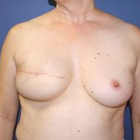
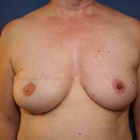
Front view
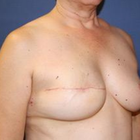
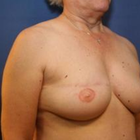
Half-side view
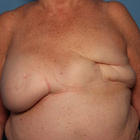
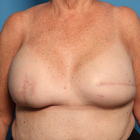
Front view
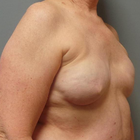
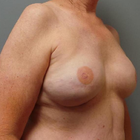
Half-side view
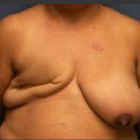
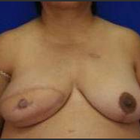
Front view
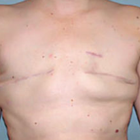
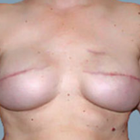
Front view
WHY US?
At Medijump, we're making medical easy. You can search, compare, discuss, and book your medical all in one place. We open the door to the best medical providers worldwide, saving you time and energy along the way, and it's all for FREE, no hidden fees, and no price markups guaranteed. So what are you waiting for?

Free

Best Price

Widest Selection

Risk-Free
What you need to know about Breast Reconstruction in New York City
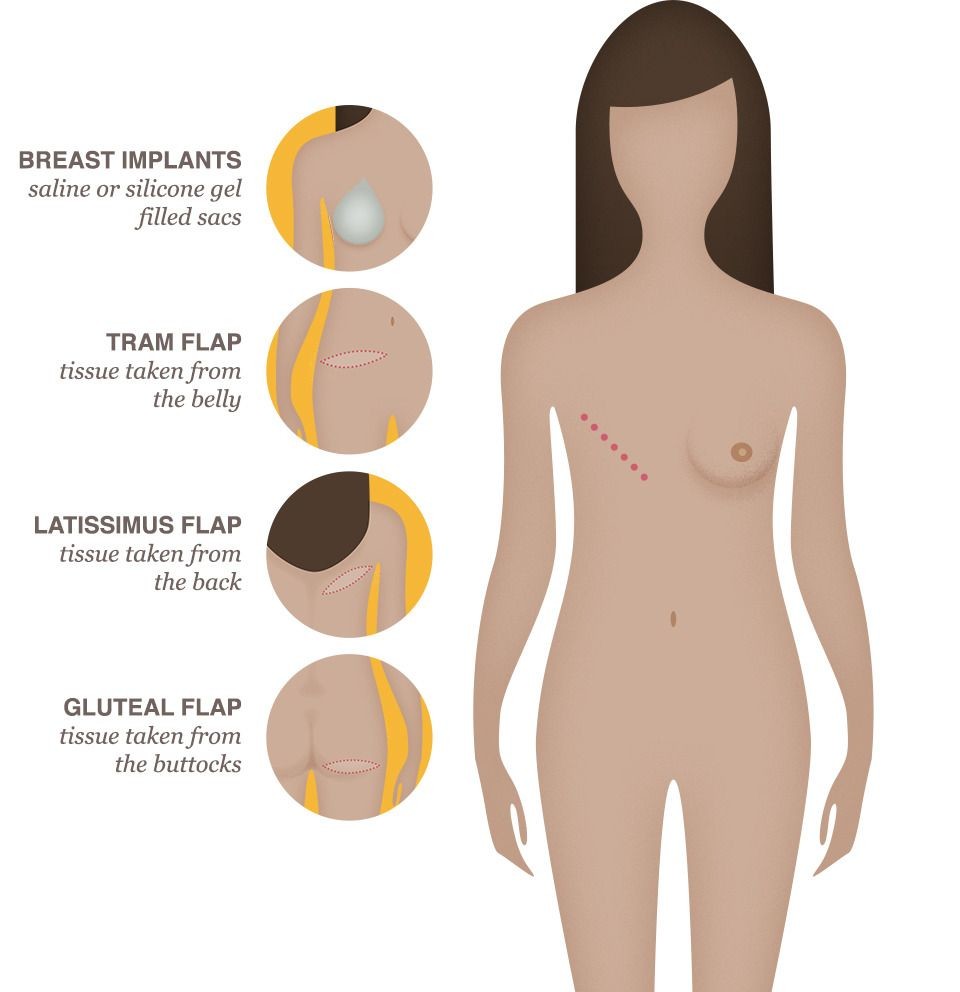
Breast reconstruction is a significant surgery undertaken to rejuvenate the physical form of a woman's chest after losing one or both breasts to cancer or another disease. In New York City, medical centres are well-equipped with top-tier talent in plastic surgery to facilitate this intricate procedure. Every woman's journey is different, and her treatment plan is personalized, considering her unique circumstances and needs.
It's heartening to know that breast cancer treatments like chemotherapy or radiation therapy aren't impeded by reconstruction. Moreover, this surgery doesn't spike the risk of cancer coming back. Undeniably, breast reconstruction is a major surgery with inherent risks, including chances of infection, complications with wound healing, and potential dilemmas related to implants.
What is the cost of Breast Reconstruction in New York City?
Undergoing surgery like Breast Reconstruction brings along a financial commitment. The expense varies extensively, depending on many factors like the complexity of the procedure, the medical professional performing the surgery, the hospital's facility, and the region, amongst others. Generally, the cost might range between $15,000 to $50,000, including multiple surgeries or intricate techniques within this estimate.
Thankfully, in many cases, insurance plans cover such surgical procedures, especially given mandates like the Women's Health and Cancer Rights Act of 1998 in the U.S. Still, out-of-pocket expenses associated with co-payment or deductibles can add up. It's recommended to navigate these aspects with your insurance provider and your chosen healthcare facility in New York City.
What does a Breast Reconstruction Procedure Involve?
Breast reconstruction generally happens in stages, starting with the most complex first, which may either occur at the same time as the mastectomy or later, based on the individual’s specific health conditions or treatment plan.
Two main techniques are employed in breast reconstruction. One is the use of an implant, saline, or silicone to recreate the breast shape. Two, autologous or flap reconstruction where tissue from the patient’s body like the abdomen or thigh is relocated to recreate the breast shape. The method selected is dependent on individual factors like the patient’s health, personal choice, cancer type, and stage.
After the primary surgery and post an adequate healing period, the surgeon performs a second procedure to recreate the nipple and areola. Later, to give it a natural look, the nipple-areola complex is tattooed. Remember that although it is a common procedure, complications might arise involving reaction to anaesthesia, bleeding, infection, poor healing or the need for further interventions.
How Long Should I Stay in New York City for a Breast Reconstruction Procedure?
Post-breast reconstruction surgery, patients typically stay in the hospital for two to five days. However, if the reconstruction was done immediately after the mastectomy, the stay could extend from three to six days.
Overall, a patient should expect to remain in New York City for approximately two weeks post-surgery. This allows enough time for necessary follow-ups and to address any complications, if they arise. As with any major surgical procedure, do not hasten the healing process.
What's the Recovery Time for Breast Reconstruction Procedures in New York City?
The recovery timeframe for breast reconstruction procedures in New York City varies from patient to patient. Generally, for implant-based procedures, patients may take about four to six weeks to recuperate before they return to normal routines. For more complex autologous techniques, particularly those using abdominal tissue, patients might require six to eight weeks for recovery.
Recovering patients need to temper their activities during this period. Avoid lifting heavy objects and defer strenuous exercise until your physician gives a clear signal. Medical assistance should be promptly sought if any discomforting symptoms like chronic pain, redness or swelling surface.
What's the Success Rate of Breast Reconstruction Procedures in New York City?
Medical success cannot just be measured in terms of complication-free postoperative progress or longevity of implants used in breast reconstruction. Patient satisfaction with their surgery, their psychological well-being following the operation, their perception of body image, and their quality of life post-surgery are equally important factors to consider. Studies indicate that between 85% to 90% of women who have undergone breast reconstruction are satisfied with the long-term results.
In New York City, dedicated hospitals and healthcare facilities strive to offer high-quality treatment, ensuring the best possible surgical outcomes using progressive technology and experienced professionals. Still, everyone's response to surgery varies, and outcomes depend on factors such as overall health, age, body type, and compliance with surgical advice.
Are there Alternatives to Breast Reconstruction Procedures in New York City?
Indeed, there are alternatives to breast reconstruction in New York City. The journey of every woman is unique and how she chooses to deal with the loss of a breast, or both, is a highly personal decision. Alternatives include:
- Breast Prostheses or Forms: They are silicone forms that imitate the appearance and feel of natural breast tissue. They come in diverse sizes, shapes and colours to closely match the woman's skin tone.
- Flat Closure: In this method, the surgeons sew up the chest wound smoothly, without constructing a breast mound. This option appeals to women who choose not to have more surgeries or body implants.
- Opting not to undergo reconstruction at all, also termed as "going flat: This method exhibits the woman's choice to live comfortably with her new body shape without artificial substitutes or further surgeries. It is a fully personal decision deserving respect and support.
Each of these options has pros and cons, and the choice depends on the woman’s personal preference, health status, lifestyle, and perception of her body. Regardless of the choice, it’s important to regularly monitor breast health and engage in practices that promote overall wellness.
What Should You Expect Before and After the Breast Reconstruction Procedure?
Before the surgery, comprehensive discussions with the surgeon will take place to understand treatment objectives, outcomes, and possible complications. Preoperative tests, lifestyle modifications, and nutritional advice may form a part of the preparatory process.
Postoperative care is equally important: discomfort, swelling, and bruising are normal and subside over time. Pain management strategies will be provided to help you manage discomfort effectively. Your surgeon will provide personalised guidance on caring for your surgical site, usage of medications, and physical activities.
What sort of Aftercare is Required for Breast Reconstruction Procedures in New York City?
The following points should be considered post-operation:
- Follow the instructions given by your doctor and take your medicines as and when prescribed.
- Consult a nutritionist for a diet plan. A healthy diet helps you recover faster.
- Do not wear a padded or underwire bra until allowed by your doctor.
- Use surgical bras in the early few days after the surgery.
- Avoid excessive unnecessary movement of your breasts.
- Do not lift heavy objects and children - it could stretch on your stitches.
- Change your bandage whenever it gets dirty. Germs can cause infection.
- Do not take a bath when the bandages are still intact. A wet bandage can also be the cause of infection.
- Abstain from sexual activity for at least 6 weeks.
- Take rest - give yourself time to recover.
How Do I Prevent Cancer from Recurring?
Preventing cancer recurrence largely revolves around a balanced, healthy lifestyle coupled with regular medical check-ups. Regular exercise, maintaining a healthy weight, and eating nutritiously can contribute to cancer prevention. Smoke cessation and limiting exposure to secondhand smoke are crucial for both prevention and postoperative recovery.
Regular breast self-examinations, as well as mammograms and follow-up visits, are critical for early detection of any recurrence. Stress management techniques like yoga, meditation, and spending time in nature can also play an essential role in overall health.
Your medical team in New York City is there to support you, offering advice tailored to your individual health status and medical history. Remember, proactive health checks are key to maintaining overall health and preventing the recurrence of diseases like cancer.
What is the ideal time to have Breast Reconstruction surgery after a Mastectomy in New York City?
The decision regarding when to have Breast Reconstruction following a Mastectomy in New York City is largely based on the individual's health status, treatment plan, personal preferences, and discussions with the oncology team. Breast reconstruction can be done at the time of mastectomy (immediate reconstruction) or at a later date (delayed reconstruction). Immediate reconstruction might offer psychological benefits and less overall surgery since both procedures are done together. Yet, if additional treatments such as radiation therapy are required post-mastectomy, opting for delayed reconstruction could be advisable to avoid risks posed by radiation to the new construct.
Remember that deciding on the timing of breast reconstruction is a personal choice and should be made in consultation with your healthcare providers. They can provide specific guidance based on your health condition and treatment plan.
How Will Breast Reconstruction in New York City Impact My Routine Mammograms and Breast Cancer Detection?
Breast reconstruction surgery may impact the way routine breast cancer screenings are conducted. After a mastectomy with or without reconstruction, women usually don't need routine screening mammograms on the treated side since all breast tissue has been removed. However, they would need routine mammograms for the untreated breasts.
If you've had reconstruction using your own body tissue, your surgeon or oncologist will guide you on whether or not you'll require mammograms on the reconstructed breast. Remember, mammograms can still be performed on reconstructed breasts, and self-breast exams should be a regular part of your health routine.
Whilst the information presented here has been accurately sourced and verified by a medical professional for its accuracy, it is still advised to consult with your doctor before pursuing a medical treatment at one of the listed medical providers
No Time?
Tell us what you're looking for and we'll reachout to the top clinics all at once
Enquire Now

Popular Procedures in New York City
Prices Start From $497

Prices Start From $208

Prices Start From $834

Prices Start From $500

Prices Start From $93

Prices Start From $85

Recommended Medical Centers in New York City for Breast Reconstruction

- Interpreter services
- Translation service
- Religious facilities
- Medical records transfer
- Medical travel insurance
- Health insurance coordination
- TV in the room
- Safe in the room
- Phone in the room
- Private rooms for patients available

- Interpreter services
- Translation service
- Religious facilities
- Medical records transfer
- Medical travel insurance
- Health insurance coordination
- TV in the room
- Safe in the room
- Phone in the room
- Private rooms for patients available

- Interpreter services
- Translation service
- Religious facilities
- Medical records transfer
- Medical travel insurance
- Health insurance coordination
- TV in the room
- Safe in the room
- Phone in the room
- Private rooms for patients available

- Interpreter services
- Translation service
- Religious facilities
- Medical records transfer
- Medical travel insurance
- Health insurance coordination
- TV in the room
- Safe in the room
- Phone in the room
- Private rooms for patients available

- Interpreter services
- Translation service
- Religious facilities
- Medical records transfer
- Medical travel insurance
- Health insurance coordination
- TV in the room
- Safe in the room
- Phone in the room
- Private rooms for patients available

- Interpreter services
- Translation service
- Religious facilities
- Medical records transfer
- Medical travel insurance
- Health insurance coordination
- TV in the room
- Safe in the room
- Phone in the room
- Private rooms for patients available

- Interpreter services
- Translation service
- Religious facilities
- Medical records transfer
- Medical travel insurance
- Health insurance coordination
- TV in the room
- Safe in the room
- Phone in the room
- Private rooms for patients available

- Interpreter services
- Translation service
- Religious facilities
- Medical records transfer
- Medical travel insurance
- Health insurance coordination
- TV in the room
- Safe in the room
- Phone in the room
- Private rooms for patients available

- Interpreter services
- Translation service
- Religious facilities
- Medical records transfer
- Medical travel insurance
- Health insurance coordination
- TV in the room
- Safe in the room
- Phone in the room
- Private rooms for patients available

- Interpreter services
- Translation service
- Religious facilities
- Medical records transfer
- Medical travel insurance
- Health insurance coordination
- TV in the room
- Safe in the room
- Phone in the room
- Private rooms for patients available
Breast Reconstruction in and around New York City
About New York
New York City, or simply New York (NY), is the most populous city in the United States with an estimated population of over 8 million. The city is labeled as the cultural, financial, and media capital of the world. It is an important center of international diplomacy since it houses the headquarters of the United Nations. The city has been attracting tourists from all around the globe for its architectural beauty, dining spots, and arts. Fueled by its global popularity and superior healthcare, the city also welcomes patients from many other countries to undergo cosmetic surgeries and complex or rare procedures that are not available in the patient’s home country. The medical professionals are highly qualified, skilled, and experienced. The medical costs might not be the cheapest, but patients will get the best treatment in the world.
Popular Areas in New York
New York offers its visitors a myriad of attractions to see and things to do. Tourists can find world-famous sites in almost every corner. The following are the most popular places in the city.
- Statue of Liberty is a symbol of freedom and democracy. It was a gift from the French people to the people of the United States as a monument of international friendship during the American Revolution. This famous statue was designed by French sculptor Frédéric Auguste Bartholdi, and the metal framework was built by Gustave Eiffel. Tourists can access the pedestal and the crown. Although the climb to the top is strenuous, the view from Lady Liberty’s crown is breathtaking, making it one of the most rewarding experiences of your trip to NYC. To get to the statue, you need to take a ferry from Battery Park City or New Jersey. There is only one official ferry company that is allowed to take you to the islands, Statue Cruises.
- Staten Island Ferry offers a stunning landscape of New York City and the Statue of Liberty. The ferry runs frequently and is free. Tourists can enjoy the refreshing breeze while admiring Governors Island, the Brooklyn Bridge, lower Manhattan and Wall Street’s skyscrapers, Ellis Island, the Statue of Liberty, and the Verrazano-Narrows Bridge.
- Empire State Building is perhaps the most iconic symbol of New York City. This magnificent landmark should not be missed by any visitors. The building was opened during the Great Depression in 1931 and tourists can see its Art Deco style in the architecture. The view from its 86th and 102nd floors is spectacular, especially around sunset time.
- Central Park is 843 acres of open space and is a good place to escape from the concrete jungle of New York City. The park was designed by Frederick Law Olmsted and Calvert Vaux, and it was the first major landscaped public park in the United States. Tourists can wander around the park, enjoy a picnic, visit a memorial to John Lennon, or interact with animals in the Zoo.
Weather and Climate in New York
New York City has four seasons, each with its own perks, which makes the city a year-round destination.
- Spring starts in March and ends in April. The city enjoys a pleasant temperature during this season. It is one of the most beautiful times to visit since the city is filled with Cherry Blossoms and hosts a number of festivals. However, expect to experience seasonal storms.
- Summer is from June to August. The temperatures are mostly warm, with an average between 25 °C to 30 °C. The city is usually crowded and busy during this season, but tourists can enjoy several free summer concerts.
- Autumn is a great time to visit New York City, which lasts from September to November. The summer heat will be replaced with a cooler temperature, and the city is overflowing with red and orange leaves.
- Winter in the city can be freezing and sometimes snowy. The season starts in December and ends in February. The temperatures can drop as low as -25 °C. If you plan to visit during winter, make sure to dress properly.
Getting Around in New York
The primary international airport in New York City is the John F. Kennedy International Airport. More than ninety airlines operate from this airport, including several budget airlines such as JetBlue. Getting around the city is fairly easy and inexpensive, especially by public transportation. The city has 27 subway lines stopping at 472 stations and more than 5,000 buses. To ride the subway, you will need to purchase a MetroCard that cost $1. The fares are $2.75 per trip and you can buy a one week unlimited MetroCard for $33 or an unlimited monthly MetroCard for $127.
The bus will take you to many places including the east or west portions of Manhattan. The bus fares are $2.75 per trip and the buses only accept MetroCard or exact fare in coins. If you do not want the hassle to figure out the public transportation system, the iconic yellow taxis are widely available. You can flag them down directly from the streets. The taxis are green in Brooklyn and Uber and Lyft are also available.
Tourists Visas in New York
Citizens of Canada, Marshall Islands, Micronesia, Palau, and Bermuda are given visa exemption access. Holders of passports issued by 38 countries including Australia, Singapore, and the United Kingdom are selected for the Visa Waiver Program. Nationals from countries that are not listed in the visa exemption and visa waiver program need to apply for a visa. All visitors may stay for a maximum of 90 days. It is advisable to learn more about the visa policy at your nearest United States Embassy.
Additional Information
- Local Currency: US dollar ($) is the official currency. Please check XE.com for the current exchange rate to your local currency.
- Money & Payments: ATMs can be found everywhere, and credit cards are accepted at most hotels, restaurants, and shops. Tipping is not optional. For restaurant servers and bartenders, 15% - 20% of the bill is acceptable.
- Local Language: The main language in New York City is English. However, there are over 800 languages spoken in the city, such as Spanish and Chinese.
- Local Culture and Religion: Christianity is the major religion in New York City, followed by Judaism, Islam, Buddha, and Hindu.
- Public Holidays: New York City celebrates various holidays, including New Year, Martin Luther King Jr Day, Independence Day, Thanksgiving Day, and Christmas Day.
Popular Searches
- Plastic Surgery in Thailand
- Dental Implants in Thailand
- Hair Transplant in Thailand
- Breast Augmentation Thailand
- Gastric Sleeve in Thailand
- Gender Reassignment Surgery in Thailand
- Laser Hair Removal in Bangkok
- Botox in Bangkok
- Dermatology in Bangkok
- Breast Augmentation in Bangkok
- Coolsculpting in Bangkok
- Veneers in Turkey
- Hair Transplant in Turkey
- Rhinoplasty in Turkey
- Stem Cell Therapy in Mexico
- Rhinoplasty in Mexico
- Liposuction in Mexico
- Coolsculpting in Tijuana
- Rhinoplasty in Korea
- Scar Removal in Korea
- Gastric Sleeve in Turkey
- Bone Marrow Transplant in India
- Invisalign in Malaysia
- Plastic Surgery in the Dominican Republic
- Tummy Tuck in the Dominican Republic
- Plastic and Cosmetic Surgery in Poland
- Rhinoplasty in Poland
- Hair Implant in Poland
- Dental Implants in Poland
- IVF in Turkey

